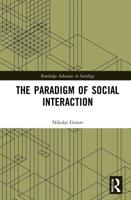Publisher's Synopsis
Smart Home technology offers the prospect of significant improvements in the living standards for elderly and disabled people who are heavily reliant on home care. However, the benefits of home automation for this group can only be realised if a broader consumer market develops, improving both availability and affordability of technology.;To explore this, the Joseph Rowntree Foundation commissionedthe Consumers' Association to conduct preliminary research into whether there is a potential mass market for Smart Hometechnology. The research surveyed consumers' interest in the concept and involved interviews with relevant experts to establish their views on the prospects for Smart Homes.;The survey of consumers' attitudes indicates that although views about the appeal of smart homes are mixed, there is significant underlying public interest in the concept that could be unlocked at the right price. The findings further indicate a general lack of enthusiasm on the part of construction and property industries, manufacturers and suppliers to push, or even properly promote, this technology. However, there are changes on the horizon that could stimulate future building activity; these include scale economies from the American market, technological advances, and interest from the consumer electronics industry.;With the infant Smart Home and other associated high-technology markets changing so rapidly, any predictions for their future development remain uncertain. Nevertheless, this research does suggest that a consumer market for Smart Home technology or variants of it could develop.










